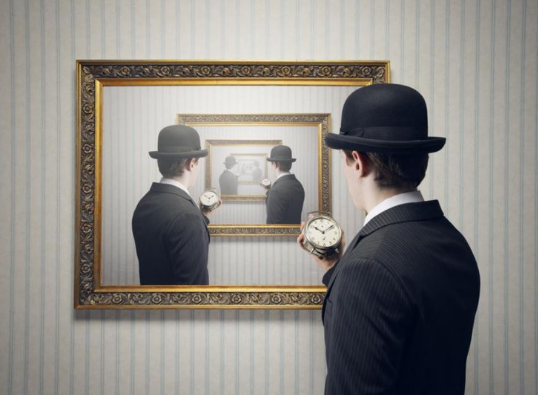Déjà Vu in Medicine: Causes, Types, and Its Connection to Brain Health
Learn about déjà vu from a medical perspective, including its causes, types, and its relationship with neurological disorders such as epilepsy.
BODY HEALTHDÉJÀ VUEPILEPSYMEMORYNEUROLOGICAL DISORDERS
11/25/20243 min read


An illustration of déjà vu, where a person feels as if they have experienced a similar event before
Have you ever felt like you’ve been in a situation before, even though you’re certain you haven’t? This phenomenon is known as déjà vu, which means “already seen” in French. While often considered a common occurrence, déjà vu has intriguing medical implications, especially concerning brain health.
What Is Déjà Vu?
Déjà vu is a sensation where someone feels they have previously experienced an event or situation, despite no concrete evidence or memory supporting it. This phenomenon occurs spontaneously and is often harmless. However, in some cases, déjà vu may be a symptom of a neurological disorder.
Medical Causes of Déjà Vu
Though not fully understood, medical experts propose several theories about the causes of déjà vu:
Excessive Brain Activity:
Déjà vu may be linked to abnormal electrical activity in the brain, particularly in the temporal lobe, which plays a role in memory and recognition.
Memory System Disruption:
The brain may incorrectly process new information as a memory, creating a sense of familiarity.
Temporal Lobe Epilepsy:
Déjà vu frequently occurs in people with epilepsy, especially those with seizures originating in the temporal lobe. It can act as an aura or a warning sign before a seizure.
Cognitive Disorders:
In older individuals, déjà vu may indicate early signs of memory-related conditions like dementia or Alzheimer’s.
Stress and Fatigue:
High stress levels or sleep deprivation can disrupt how the brain processes information, potentially triggering déjà vu.
Chemical Imbalance in the Brain:
Temporary disruptions in neurotransmitters like dopamine have also been associated with déjà vu experiences.
Types of Déjà Vu
Déjà vu can be categorized based on context and its association with medical conditions:
Associative Déjà Vu:
Commonly occurs in healthy individuals and is usually unrelated to neurological issues.
Pathological Déjà Vu:
Associated with brain disorders, especially in individuals with epilepsy.
Déjà Vécu:
Involves not just recognizing a situation but also feeling as if specific details are known, often linked to memory impairments.
Déjà Vu and Neurological Disorders
In certain cases, déjà vu may be an early symptom of neurological conditions, such as:
Epilepsy:
Déjà vu is often an aura that precedes temporal lobe seizures.
For epilepsy patients, déjà vu experiences tend to be more intense and recurrent.
Dementia:
People with memory disorders may experience déjà vu as the brain misinterprets old memories as new experiences.
Migraines:
In some instances, déjà vu is part of the sensory aura associated with migraines.
📝Learn more: The Relationship Between Epilepsy and The Condition of Déjà Vu
Should You Be Concerned About Déjà Vu?
Déjà vu is generally harmless, especially if it occurs occasionally and without accompanying symptoms. However, frequent déjà vu episodes or those paired with symptoms like seizures, confusion, or loss of consciousness should be evaluated by a doctor.
Diagnosis and Treatment
If déjà vu raises medical concerns, doctors may perform the following tests:
Medical History:
Questions about the frequency, duration, and context of déjà vu episodes.
Electroencephalogram (EEG):
Detects abnormal electrical activity in the brain.
MRI or CT Scan:
Identifies structural abnormalities in the brain.
Cognitive Tests:
Evaluates memory and thinking processes.
Treatment Options:
If related to epilepsy, doctors may prescribe anti-epileptic drugs.
Cognitive therapy can address déjà vu caused by memory disorders.
Lifestyle adjustments, such as sufficient sleep and stress management, may help in cases related to fatigue or stress.
Managing Déjà Vu
To reduce the occurrence of excessive déjà vu, consider the following steps:
Get adequate sleep every night.
Manage stress through relaxation techniques or exercise.
Consult a doctor if déjà vu episodes become frequent or intense.
📝Read also: The Benefits of Meditation for Your Body and Mind Health
FAQs About Déjà Vu in a Medical Context
Is déjà vu always dangerous?
No, déjà vu is often a normal and harmless phenomenon.Is déjà vu linked to epilepsy?
Yes, déjà vu can act as an aura or early sign of seizures in individuals with temporal lobe epilepsy.Can stress trigger déjà vu?
Yes, stress and fatigue may increase the likelihood of experiencing déjà vu.How is pathological déjà vu diagnosed?
Doctors use EEGs or MRIs to detect neurological abnormalities causing déjà vu.Can déjà vu be prevented?
Not entirely, but maintaining brain health through a healthy lifestyle can reduce its frequency.
Déjà vu is a fascinating phenomenon that is usually harmless. However, in medical contexts, it can signal neurological conditions requiring further attention. If you experience recurrent or intense déjà vu alongside other symptoms, consult a doctor for an accurate diagnosis and appropriate care.
